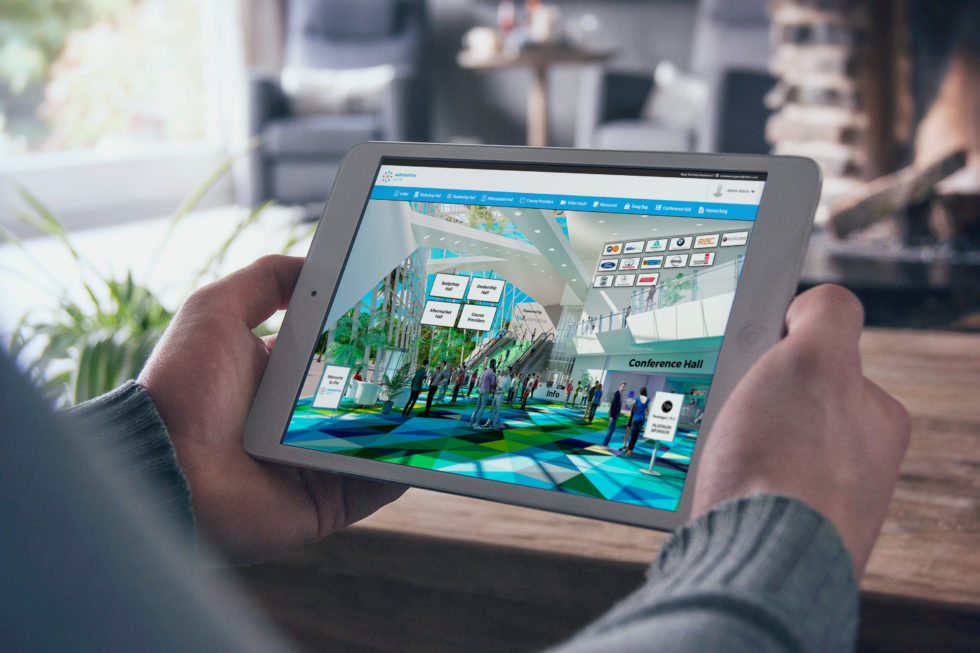We all have our preferences when it comes to running events – but if the coronavirus has taught us one thing, it’s that virtual events can’t be stopped.
While physical events have been put on complete hold for the time being, the virtual world is booming, and one might question when it will actually be safe to meet in large groups in person again.
Are physical events dead?
And even if we do get them up and running again, will there be a reduction in interest as the world adapts to a future of social distancing?
And what’s more, will businesses want to pay the extra cost of hosting or exhibiting at a physical event in future?
Below, we take a look into the pros and cons of both physical and virtual events to help you decide for yourself.
In-person event pros
Attending an event in person is a great way to network. You get to have your handshakes with new people, make eye-contact and get plenty of social interaction. It’s also a great opportunity to share customised merchandise with attendees to increase awareness for your brand. Companies can easily leave their mark on visitors. Physical events also leave behind strong brand association and fond memories that build authority over time – and if you’re a guest speaker, this only enhances your presence to visitors, allowing you to build an extended professional network on behalf of your professional and personal brand.
In-person events cons
While the above is all great when we consider the long term and return on investments effects an in-person event can have for your brand, it certainly costs a lot to get to this stage in the first place.
Physical events require renting event spaces, hiring staff, and costs associated to travel, food, hotels, and entertainment – and even if you don’t hire extra staff to attend events, it’s still time away from the desk for existing staff. Many events last 2-3 days. In terms of gathering mass data, most physical events only collect a sign-in sheet too, which may not always be 100% relevant for your business – meaning that a lot of the time, this long awaited event that you’ve invested in, doesn’t bring any major benefit to your company.
When we consider cost, in-person events are a more costly investment.
Virtual event pros
Virtual events are more cost effective than in-person events. This is a very obvious pro.
Well known guest speakers, for example, charge less because attending the event doesn’t cause them as much hassle. A global audience can also attend, including your team, without leaving their workspace.
Virtual events can stay live for longer than just the allocated days – so you have a better chance of reaching more people, for the fraction of the cost.
Virtual events can provide very useful data insights that help you nurture hot leads. They can also make perusing booths and interacting with sales reps easier and more relaxing – and while you don’t have an array of merchandise to shower visitors with, you can provide your own branded e-books or guides etc. and save massively on the costly cups, or pens…creating an e-book costs nothing, and you’re saving on printing costs of the documents too.
Virtual events improve both short and long term bottom lines, dramatically increasing brand visibility and authority.
Finally, virtual fairs can thrive at a time where we are social distancing to stay safe. It’s still possible to connect with others, even if you are feeling more disconnected to the world at present.
Virtual fair cons
You do lose the added touch of sharing merchandise, and interacting in person – but speaking truthfully, if you can still engage with visitors from your workspace, eliminating travel, food, hotel, supplies and more costly exhibiting costs, then we’re finding it pretty difficult to share as many cons as in-person events.
If you’d like to hear more about hosting a virtual event, we are the official distributors of Loop Expo. You can book a demo with Loop Expo to view their impressive platform here.
Using company culture to hire and retain employees
Company culture defines the persona of a business. It differentiates an organisation from the others and includes not only the work environment, but also the way employees interact with each other, how teams collaborate, expectations, the values, vision, and mission...
Successful Guide to Onboarding Remote Workers
Remote employees have become an essential part of the workforce. Ensuring that your remote workers have a delightful onboarding experience will result in better inter and intra-team relationships, job satisfaction, and increased employee retention rates. Many...
Tips and Techniques for Interviewers
Though there are no hard and fast rules for interviewing job candidates, an honest and meticulous analysis of your interview process can help you make some key improvements. It often happens that hiring managers or teams undermine the importance of preparing for...









